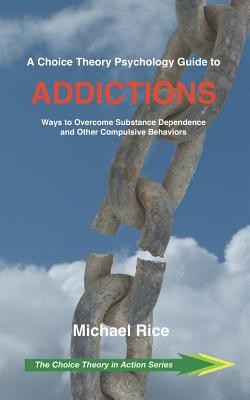
- We will send in 10–14 business days.
- Author: Michael Rice
- Publisher: INDEPENDENTLY PUBLISHED
- ISBN-10: 1070689300
- ISBN-13: 9781070689302
- Format: 12.7 x 20.3 x 0.6 cm, minkšti viršeliai
- Language: English
- SAVE -10% with code: EXTRA
Reviews
Description
The Choice Theory approach to addictive behavior does not rely on external controlling methods to make someone do something they don't want to do. Instead, the Choice Theory approach is discovering what and how the client really would want his/her life to be; identifying the important people in their life; evaluating the client's choices and how those choices either helped or harmed their relationships; allowing them the freedom and respect to make their own decisions on how to improve their life; and creating a plan on how to get what they want in their life. Clients are more inclined to improve their life when it is their own idea, feel respected, and don't feel threatened or coerced to do something they don't want to do.
- Author: Michael Rice
- Publisher: INDEPENDENTLY PUBLISHED
- ISBN-10: 1070689300
- ISBN-13: 9781070689302
- Format: 12.7 x 20.3 x 0.6 cm, minkšti viršeliai
- Language: English English
The Choice Theory approach to addictive behavior does not rely on external controlling methods to make someone do something they don't want to do. Instead, the Choice Theory approach is discovering what and how the client really would want his/her life to be; identifying the important people in their life; evaluating the client's choices and how those choices either helped or harmed their relationships; allowing them the freedom and respect to make their own decisions on how to improve their life; and creating a plan on how to get what they want in their life. Clients are more inclined to improve their life when it is their own idea, feel respected, and don't feel threatened or coerced to do something they don't want to do.


Reviews